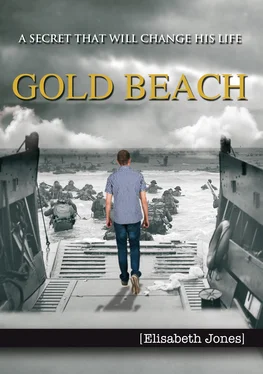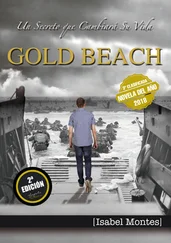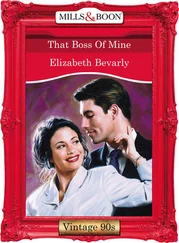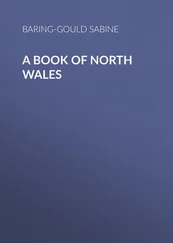1 ...6 7 8 10 11 12 ...17 ‘Who told you this story?’
‘Nobody. I like reading. I read novels and stories but most of all history books.’
‘History books?’ I asked in surprise.
‘Yes. I've always wondered whether my father's death was worth it or not, that's why I read everything I can on World War II. When I grow up I’m going to be a History teacher. I'll teach my students what happened in the past so it won't happen again in the future. What about you? What will you become when you grow up?’
Isobel was teaching me a lesson of maturity. Her life hadn't been as easy as mine. While I enjoyed my free time fishing, she did the housework to help her mother. I used to study because it was my duty; she did it to carve out a future that would improve her family's welfare. I'd never thought about that question seriously.
‘Well, I don't really know,’ I answered with a shrug.
‘Well, you have this business and some day, when your mother retires, it will pass on to you, although I've always thought you would be a good teacher.’
‘Why do you say that?’ I asked surprised.
‘First of all, because you get good grades and that says a lot about your character, and secondly because of the way you help Malcom Johnson with his homework. You don't even realise but you are teaching him, and you actually do it very well.’
The discretion with which Isobel had followed my movements proved how absent-minded I was. I had lived in my own world all those years without paying attention to what was around me. What they said about girls growing up faster was true, at least in Isobel's case.
‘I'm going to ask your mother to let me come to work at your house. That way my mother will be able to rest a bit. And in the future, when I become a teacher, I’ll work at the town school so my mother can retire.’
‘You didn't meet your father either, did you?’ I asked directly, as if taking it for granted that we shared the same misfortune.
She looked surprised at seeing the unexpected turn of the conversation.
‘What do you mean by either ? Your father didn't die in the war and you were lucky enough to meet him, even though it was only for a few years,’ she told me rather surprised.
‘You're right,’ I said with a forced smile to conceal my blunder. ‘Do you know what happened to him and where he died, at least?’
‘Of course I do,’ she replied, frowning as if the question had offended her. ‘He should have died fifteen years ago today, but he died a day after seeing Charles de Gaulle make his first speech on the 14 thof June in Bayeaux. He was very unlucky. He landed on Gold Beach with the first wave. Around 6.30am he had already stepped on French soil. What turned out to be a miracle was what ended his life.’
‘What do you mean?’
‘He managed to survive the carnage with only a couple of wounds. But there was so much death around him that he didn't pay attention to himself. He kept on fighting with his regiment until they set Bayeaux free the day after the landing. When, at last, the troops had their first break he realised how weak he was. He died in the hospital of that town from septicaemia.’
She saw from my quizzical face that it was the first time I’d heard that word.
‘Septicaemia is a very serious infection that spreads quickly all over the body and it's mortal. If he’d have felt worse they might have taken care of him and he’d be alive now,’ she said, lowering her head.
I got closer to her to hold her hand. Thinking back on that moment I realise that nothing happens by chance. Basically, destiny has its secret plan although we don't understand it at first. On the 6 thof June 1944, our fathers' lives met with a purpose just as ours did.
‘And how did you get to know what had happened to him?’ I asked her in surprise.
‘From the letters he wrote to my mother. In the last one she received from him he asked her to name me Isobel and if I was a boy, Gareth, after him. A month later, my mother received a letter from the hospital confirming his death. I think it was one of the nuns that took care of him who wrote to us.’
‘I suppose your mother must have explained to you what he was like, right?’ I asked her as I let go of her hand and moved away discreetly.
‘Of course. I know him as if I’d lived with him. I'm very proud of my father. His photographs are my dearest treasure. I know he was a brave man that fought to defend his country. I've read his letters so many times that I know them by heart now. Even in the middle of the battle he didn't stop helping his comrades. Imagine, he even saved a soldier everyone thought dead. Remind me someday to show you the photograph he got taken with him.’
As I heard her words, something woke inside me. What if, by any of those twists of fate, my mother's first love was still alive? I stared at her. The sky blue in her eyes reassured me so much that I was on the brink of revealing my discovery to her, but finally I didn't. I chose to go on with the conversation.
‘Where is he buried?’
‘At the cemetery that was built for our soldiers in Bayoux. They say it's very beautiful, that it looks like a perfect British garden with its trees and its green lawn that always seems to be recently mown. A memorial was built at the entrance with an inscription showing how proud we are.’
‘What do you mean?’
‘ We, once conquered by William, have now set free the Conqueror's native land, ’ she said solemnly.
‘William?’ I asked, expecting a new rebuke.
Isobel stared at me open-mouthed. I suppose she couldn't believe my ignorance on historical matters.
‘Robin Hood? Normans and Saxons? Doesn't ring a bell at all?’ she said surprised but unwilling to go into the subject. ‘I think that landing in Normandy was Churchill's idea of settling our unfinished business with them. I'll explain it to you some other day, ok?’ she said as she saw the blank look on my face. ‘I intend to work tirelessly until I save enough money to visit the cemetery and take flowers to my father.’
Those words made my heart miss a beat. What if Elwyn was buried at that cemetery too? I wondered. As I looked at her without knowing what to say, I felt certain that Isobel's life and mine had followed parallel courses until destiny joined us that day for some reason I didn't yet know.
‘I'll take you there, I promise,’ I said, totally convinced that I would fulfil my promise someday.
Isobel glanced at me in surprise but the light in her eyes showed the joy that statement had given to her. When I saw that her eyes started to mist over, I tried to cheer her up.
‘Your father must have been a hero,’ I told her enthusiastically. ‘If you’ve read so many history books, you must know loads of stories from the war. Will you tell me some?’
‘Of course,’ she said with a smile of satisfaction. ‘There's one that’s my favourite.’
‘I'm all ears,’ I said as I settled deep in the sofa.
‘When I tell you, I bet you'll be proud of being a Scot too.’
Our chat had made her forget the wounds on her body. She looked happy, not only because she was talking about her father and the stories she loved, but also, as I would learn some time later, because she enjoyed my company. Isobel began to tell the story as if she was reading a book.
‘Around eight in the morning on D-day, General Lord Lovat landed at Sword Beach with two thousand men under his command. His mission: to link up with the units of the 6 thAirborne Division that had landed by means of gliders and parachutes the night before.’
‘How can you just know it was the 6 thAirborne Division?’ I asked in astonishment.
Isobel gave me a cross look. ‘I've already told you I read history books. Do you want me to tell you what happened or not?’
Читать дальше












